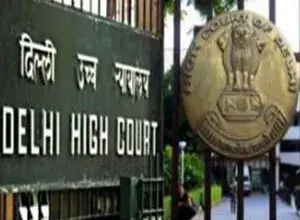The High Court of Delhi on October 26, 2021 released the Video Conferencing Rules namely the “High Court of Delhi Rules for Video Conferencing for Courts 2021”[1]. The Rules are applicable to Courts or proceedings or classes of courts or proceedings as the High Court may notify in the Official Gazette.
The Rules in detail can be accessed here.
The Rules provide for Guidelines for governing the conduct of video conferences and hearings by the Court. The Rules inter alia provide for General principles governing video conferencing, the facilities recommended for video conferencing, the procedure for video conferencing, service of summons, examination of persons, cost of video conferencing, conduct of proceedings etc.
Video Conferencing Rules 2021- Key Highlights
- Video conferencing facilities may be used at all stages of judicial proceedings and proceedings conducted by the Court;
- All proceedings conducted by a Court via video conferencing shall be judicial proceedings;
- No unauthorised recording of the proceedings by any person or entity is allowed;
- All relevant statutory provisions applicable to judicial proceedings including provisions of the CPC, CrPC, Contempt of Courts Act, 1971, Indian Evidence Act, 1872 and Information Technology Act, 2000 will apply to proceedings conducted by video conferencing;
- The Rules also define “Court point” and “Remote point”. Court point refers to Courtroom or where the Court is physically convened, or the place where a Commissioner or an inquiring officer holds proceedings under the directions of the Court and Remote point is a place where persons are required to be present or appear through a video link;
- Any party to the proceeding may move a request for video conferencing on the prescribed form;
- Summons issued to a witness who is to be examined through video conferencing, shall mention the date, time and venue of the concerned Remote Point and shall direct the witness to attend in person along with proof of identity or an affidavit;
- The Court may direct appropriate measures to protect the privacy of the person being examined during virtual conference proceedings;
- On the completion of video conferencing, if a Remote User believes that they have been prejudiced due to poor video and/or audio quality, then the Remote User shall immediately inform the Coordinator at the Court Point;
- The Coordinator at the Court Point shall ensure that video conferencing is conducted only through a Designated Video Conferencing Software;
- Video conferencing shall ordinarily take place during the Court hours;
- In criminal cases, the expenses of the video conferencing facility, shall be borne by such party as directed by the Court;
- In civil cases, generally, the party requesting for recording evidence through video conferencing shall bear the expenses;
The global pandemic which commenced in early 2020 compelled several organizations including the Indian Courts and Tribunals to resort to virtual and online mediums. The Video Conferencing Rules streamline the procedure and the processes to be followed with reference to the use of video conferencing for Courts in India.
[1] https://delhihighcourt.nic.in/writereaddata/upload/Notification/vc12272021.PDF


